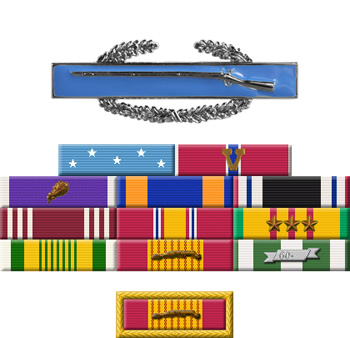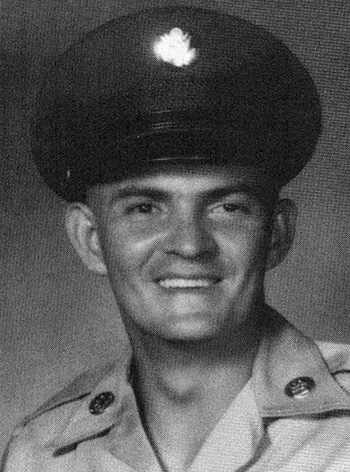William Port was born on October 31, 1941, in Petersburg, Pennsylvania. He enlisted in the U.S. Army on March 13, 1967, and was trained as an infantryman. PFC Port was assigned to Company C, 5th Battalion, 7th Cavalry, 1st Cavalry Division in the Republic of Vietnam in late 1967, and he was captured and taken as a POW after being badly wounded when he threw himself on a grenade to save his fellow soldiers on January 12, 1968. William Port died in captivity on November 27, 1968, and his remains were returned to the United States on August 14, 1985. He is buried at Arlington National Cemetery.
His Medal of Honor Citation reads:
For conspicuous gallantry and intrepidity at the risk of his life above and beyond the call of duty. Sergeant Port distinguished himself while serving as a rifleman with Company C, 5th Battalion, 7th Cavalry, which was conducting combat operations against an enemy force in the Que Son Valley. As Sergeant Port's platoon was moving to cut off a reported movement of enemy soldiers, the platoon came under heavy fire from an entrenched enemy force. The platoon was forced to withdraw due to the intensity and ferocity of the fire. Although wounded in the hand as the withdrawal began, Sergeant Port, with complete disregard for his safety, ran through the heavy fire to assist a wounded comrade back to the safety of the platoon perimeter. As the enemy forces assaulted the perimeter, Sergeant Port and 3 comrades were in position behind an embankment when an enemy grenade landed in their midst. Sergeant Port, realizing the danger to his fellow soldiers, shouted the warning, "Grenade," and unhesitatingly hurled himself towards the grenade to shield his comrades from the explosion. Through his exemplary courage and devotion he saved the lives of his fellow soldiers and gave the members of his platoon the inspiration needed to hold their position. Sergeant Port's selfless concern for his comrades, at the risk of his life above and beyond the call of duty are in keeping with the highest tradition of the military service and reflect great credit on himself, his unit, and the United States Army.
|



